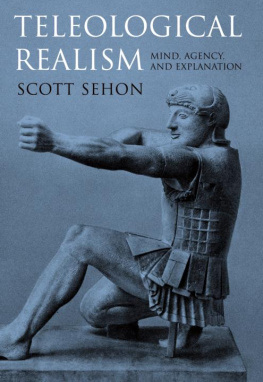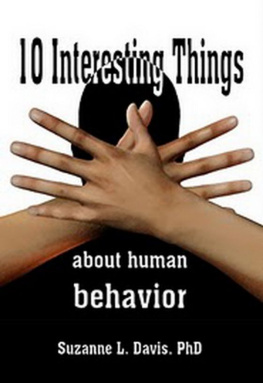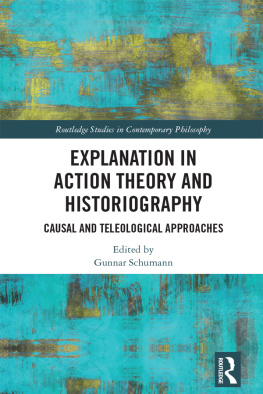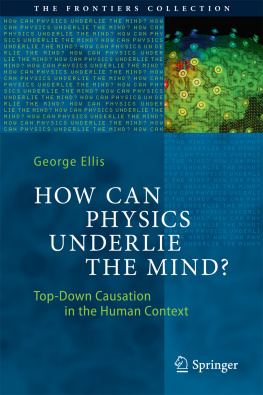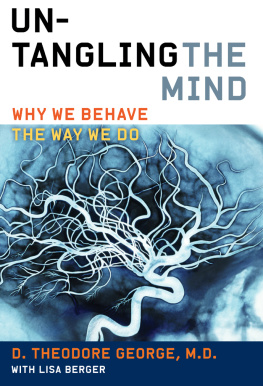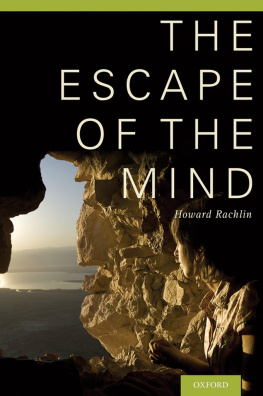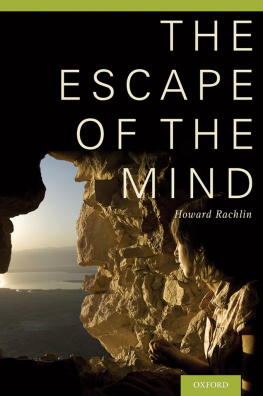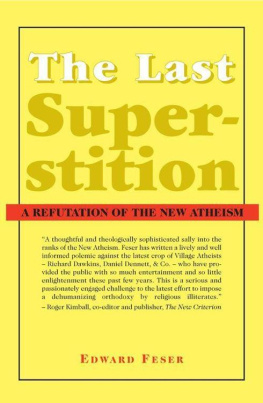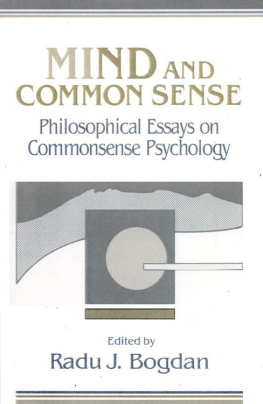Scott R. Sehon



for Jackie, Hayden, and Josephine
xi
I
1 1
III
According to Hofstadter's Law, "it always takes longer than you expect, even when you take in to account Hofstadter's Law" (Hofstadter 1979, p. 152). That law has certainly applied to the writing of this book. Through the years I have accumulated debts, philosophical and otherwise, to many people, more than I will be able to remember or properly acknowledge here.
Some of the central ideas in this book, and some isolated bits of text, go back to my doctoral dissertation, written over a decade ago. Accordingly, I am once again indebted to my dissertation advisor, Mark Johnston, and I am also grateful to Paul Benacerraf, Sarah Buss, Harry Frankfurt, Richard Moran, Christian Perring, Abraham Roth, Michael Smith, and the late David Lewis.
Some material derives from previously published articles: "Teleology and the Nature of Mental States," American Philosophical Quarterly 31 (1994): 63-72; "Deviant Causal Chains and the Irreducibility of Teleological Explanation," Pacific Philosophical Quarterly 78 (1997): 195-213; "NaturalKind Terms and the Status of Folk Psychology," American Philosophical Quarterly 34 (1997): 333-344; "An Argument against the Causal Theory of Action Explanation," Philosophy and Phenomenological Research 60 (2000): 67-85.
I thoroughly reworked the extant draft during a sabbatic leave generously granted by my institution, Bowdoin College. I have inflicted some of this material on my students at Bowdoin, and the results were useful for my education if not for theirs. I am also grateful to colleagues at Bowdoin for years of philosophical discussions and a great work environment: Denis Corish, Jordi Fernandez, Lawrence Simon, and Matthew Stuart; and to Gerlinde Rickel for running the show.
I am indebted to a number of friends and colleagues who read and commented on part or all of the manuscript: Lynne Rudder Baker, Paul Bethge, Nico Cornell, Thomas Gardner, Kevin Johnson, Laurel Jones, Alfred Mele, Stephen Naculich, Jacqueline Sartoris, G. F. Schueler, Sergio Tenenbaum, and Donald Stanley.
I am especially grateful to George Wilson. His book The Intentionality of Human Action first convinced me of the importance of action explanation to philosophy of mind and of the irreducibility of teleological explanation. My philosophical debt to his work goes beyond the scattered references that appear in the pages below. Moreover, he read and commented incisively the penultimate version of the manuscript. His comments, along with those of G. F. Schueler, caused me weeks of additional work when I thought I was all but done; this both kept me out of trouble and, I hope, resulted in an improved book.
1.1 The Mystery
When we speak of ourselves as agents with minds, we use the language of common-sense psychology (CSP). Within the common-sense psychological project, we attempt to understand people (including ourselves) as agents who act for reasons, who have moral responsibility for our actions, who act freely at least some of the time, who have purposes and goals and projects, who are loci of value, and for whom things have value. We attribute mental states in an effort to understand the point or purpose of behavior; we justify our own actions by referring to the way we believe or desire the world to be, we attribute mental states in the course of allocating moral praise or blame, and so on. CSP will deliver claims like the following: Jackie went to the kitchen in order to get wine. People who prefer beer to wine will typically choose beer if offered both. Tom Seaver threw a curveball because he thought the batter was expecting a fastball.
When we think of human beings as physical objects, we use the language of physical science, and we give causal accounts. The specific terminology we employ depends on the nature of the event we are attempting to explain or predict. If we want to know how fast a person falls if dropped from a plane, we will be concerned with the body's mass and aerodynamic properties. If we want to know why a certain medicine reduces inflammation, our explanation will be couched in terms of chemical properties of the medicine and the human organism. If we want to know how a given subject will react to a particular stimulus, we would have to look deep into the neurological properties of the brain. Although the latter sort of predictions are, in general, quite beyond our current abilities, there seems to be no barrier in principle to neurologically based predictions of human behavior.
Both CSP and physical science have the aim of understanding, explaining, and predicting human behavior. However, talk of mind and agency does not seem to mesh well with the language of physical science. Notions like action and purpose, the cornerstones of our descriptions of agents, appear to have no role in purely physical descriptions of the world. Normative notions like moral responsibility and criticizable irrationality, also central to the common-sense perspective, likewise do not belong to the conceptual arsenal of physics. We would never say that an asteroid was morally responsible for its motion, even if it crashed into Earth, nor would we say that an elementary particle was being irrational. Moreover, beliefs, desires, and other mental states have the odd feature of being about objects and states of affairs. This feature of beliefs and desires-given the label of "intentionality"-is not a property attributed by physics to physical objects. On the other hand, since human beings are physical objects, they must ultimately be appropriate subject matter for physical science, and they must behave in accord with physical laws. Physical science must be able, in principle, to provide detailed causal accounts of all bodily motions. But physical science will presumably not use the language of CSP in describing human beings as physical objects, and hence it will apparently not make the sorts of claims about persons that we are accustomed to making in CSP.
Thus, there is an apparent philosophical mystery. Putting aside substance dualist views according to which we have nonphysical souls, it seems that a human being is, in some sense, nothing more than a very complicated collection of physical particles. (I will discuss the reasons for rejecting substance dualism in the next chapter.) Thus, it seems that human behavior should be within the explanatory domain of physical science. Moreover, there is reason for thinking that, within its explanatory domain, physical science will ultimately provide complete explanations of human behavior. This makes it appear that, if common-sense talk of mind and agency is to have any validity, it must somehow be subsumed within physical science. However, the language of CSP is also quite different from the language of physical science, so it appears unlikely that the claims of CSP can simply be subsumed within the claims of physical science. At the broadest level the problem is this: It seems that mind does not fit with the rest of the physical universe, and yet it seems that mind must fit with the rest of the physical universe. The problem is hardly new; it is the mind-body problem, and it is the problem of discovering the place of rational agency. It is the problem of ascertaining the place of human beings in the natural world and of seeing whether the common-sense facts about mind and agency can be squared with a naturalistic, scientific perspective on the world.

